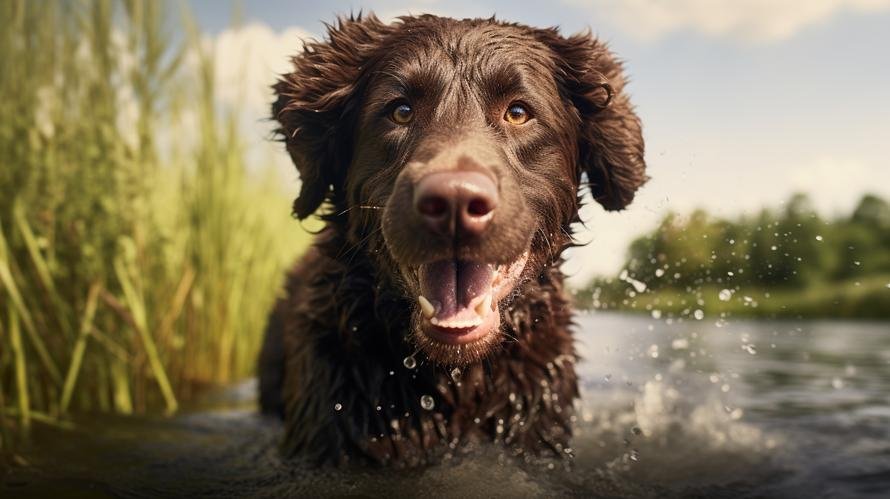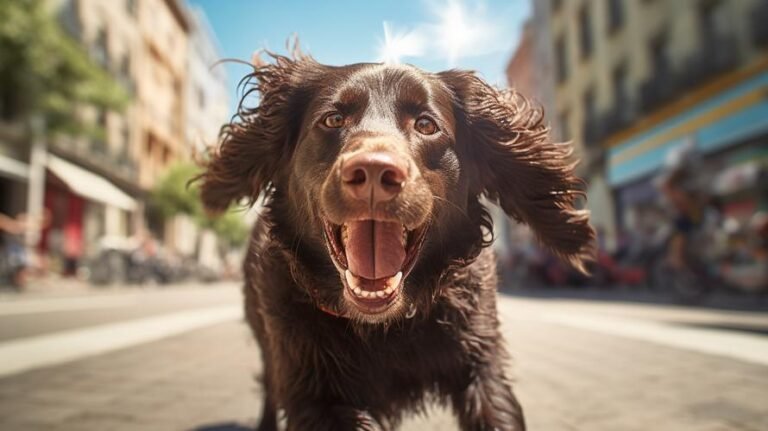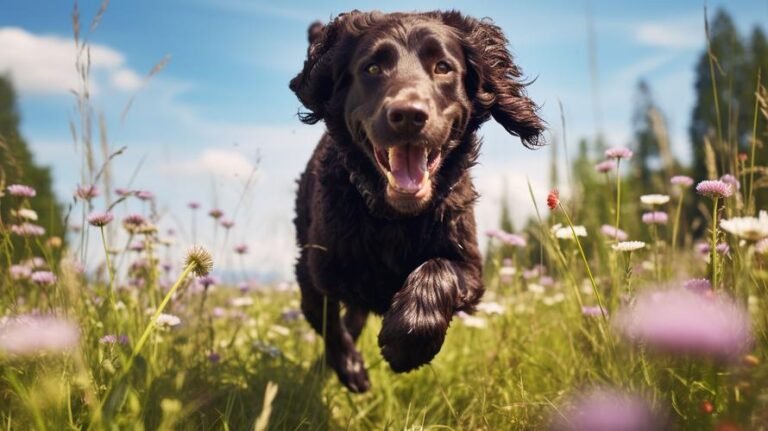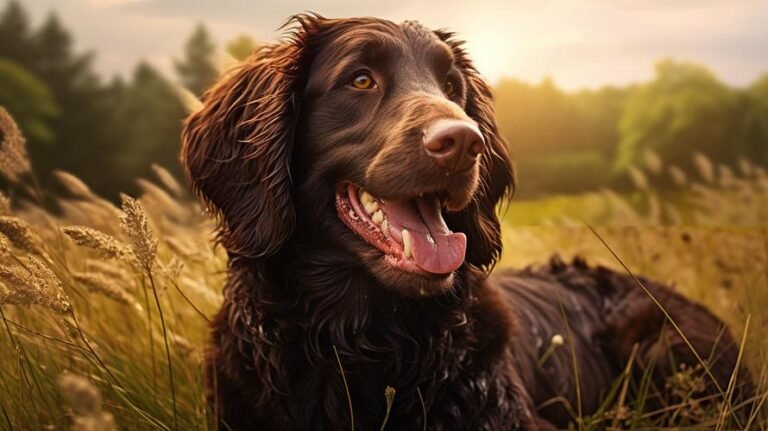Did you know that the Curly-Coated Retriever is one of the oldest retriever breeds? That’s right! Their genealogical tree dates back to the late 18th century, with roots in England. These 4-legged beauties are identified by their thick, curly coat that acts like a waterproof armor – perfect for their water-retrieving duties.
Nevertheless, perhaps their most significant trait is their gentility. There has been a lot of discussion about whether the Curly-Coated Retriever is aggressive. The simple fact is this: Curly-Coated Retrievers are typically calm, sociable, and even-tempered by nature. However, each dog is as unique as us humans, their behavior profoundly influenced by their upbringing, environment, training, and socialization.
So, relax! If you are considering adopting or purchasing a Curly-Coated Retriever, know that this breed isn’t inherently aggressive. However, remember that all dogs, regardless of breed, require training and socialization to be at their best behavior-wise.
Appearance-wise, the Curly-Coated Retriever is an eyecatcher. Their trademark tight and waterproof curls, along with their well-muscled body, truly sets them apart. But more than just their good looks, it is their cheerful and gentle temperament that steals the show.
Still, like any breed, the Curly-Coated Retriever may have its quirks. They often exhibit a level of independence and stubbornness, requiring you to lay down firm but gentle discipline. And contrary to their serious, nearly aristocratic appearance, they have a sense of humor and can be quite silly – adding to their overall charm.
However, it’s important to note that while they are generally non-aggressive, their energy levels are relatively high, which can be mistaken as signs of aggression. They love keeping themselves occupied with activities such as fetching balls, running, and swimming. Regular playtimes and exercise are particularly crucial for this breed to thrive, as they need to burn off their energy productively.
It would be wrong to assume that a Curly-Coated Retriever would never exhibit aggression. Any dog, regardless of breed, may show signs of aggression due to various reasons such as fear, frustration, or anxiety. Sometimes, health issues may lead to aggressive behaviors. It’s vital to adopt an empathetic approach and work toward understanding the root cause of this behavior if such signs emerge.
Understanding dog behavior is like decrypting coded messages. For instance, a wagging tail doesn’t always indicate a happy dog; it can also denote anxiety or fear. Similarly, if your Curly-Coated Retriever is showing signs of aggression, it might not be aggression in its traditional sense but a desperate call for help.
So, let’s address the elephant in the room. What should you do if your Curly-Coated Retriever starts showing signs of aggression?
1. Vet Checkup: Sudden aggressiveness could be an indication of underlying health issues. A professional check-up is the best starting point in such cases.
2. Professional Help: A canine behavioral specialist or a professional dog trainer can be highly beneficial in helping you understand and manage your dog’s aggressive behavior.
3. Consistent Training & Socialization: Regular, positive, reward-based training from puppyhood combined with early socialization can ensure your curly-coated friend grows into a well-mannered adult.
4. Exercise: Regular physical and mental stimulation can help redirect any unwanted energy that could otherwise translate into aggression.
5. Patience: Recognize that change takes time. Practice patience and consistency.
The bottom line is, a Curly-Coated Retriever is as gentle, fun-loving, and trustworthy as they come. Like all dogs, they too might have their bad days, but labeling them as inherently aggressive would do this wonderful breed a huge disservice.
Always remember – when it comes to dogs, there are no bad breeds, only misunderstood behaviors. And the best thing we, as responsible owners, can do is to strive to understand, love, and respect our four-legged companions for who they truly are.



